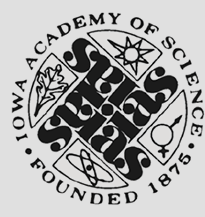Home > Iowa Academy of Science > Journals & Newsletters > Iowa Science Teachers Journal > Volume 33 > Number 3 (2006)
Document Type
Editorial
Abstract
Learning and effective teaching are both highly complex acts. Leinhardt and Greeno (1986, p. 75) write that "teaching occurs in a relatively ill-structured, dynamic environment". Classroom conditions change in unpredictable ways, and information arises during the act of teaching that by necessity must inform practice as it occurs. While this is true of all teaching, it is all the more so when effectively teaching science through inquiry. This, in part, may explain the all too common practices of lecturing, textbook assignments, worksheets, and cookbook activities in science teaching. Each of these approaches severely constrains students' input into a lesson and reduces the complexities in teaching. Teaching science through inquiry is more complex because through that approach students' misconceptions and thinking spill out into the classroom. Ironically, this increased complexity sets the stage for promoting learning because in expressing their misconceptions and thinking, students are more mentally engaged and teachers begin to understand and thus can better respond to students' misunderstandings.
Publication Date
Fall 2006
Journal Title
Iowa Science Teachers Journal
Volume
33
Issue
3
First Page
2
Last Page
2
Copyright
© Copyright 2006 by the Iowa Academy of Science
Language
en
File Format
application/pdf
Recommended Citation
Clough, Michael P.
(2006)
"The Teacher's Crucial Role in Helping Students Learn Through Inquiry,"
Iowa Science Teachers Journal: Vol. 33:
No.
3, Article 2.
Available at:
https://scholarworks.uni.edu/istj/vol33/iss3/2

